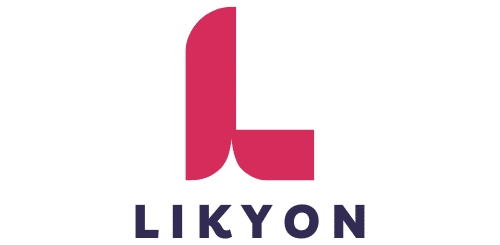The path of recovery from cancer is a challenging journey, often riddled with physical and psychological hardships. To help navigate these turbulent waters, a growing body of research has begun to explore the potential benefits of expressive writing for cancer patients.
Harnessing the power of the written word, expressive writing interventions have been shown to provide a therapeutic outlet for patients, helping them to process traumatic experiences, reduce stress, and promote their overall well-being. This article will delve into the nuances of this psychological intervention, drawing upon studies and scholarly analysis to shed light on its effectiveness.
Dans le meme genre : How Can Fetal Health Monitoring Technologies Reduce Risks During Pregnancy?
The Pennebaker Paradigm: Understanding Expressive Writing
The concept of expressive writing as a therapeutic tool was pioneered by psychologist James W. Pennebaker in the 1980s. His foundational research suggested that the simple act of writing about emotional experiences can have a significant impact on an individual’s psychological health.
In what is now known as the ‘Pennebaker Paradigm’, participants are encouraged to write about their deepest thoughts and feelings related to traumatic experiences, focusing on their emotional reactions rather than the factual details of the event. The aim of this process is to help individuals gain insight into their feelings and to make sense of their experiences.
A lire en complément : What Are the Safety and Efficacy of Herbal Supplements in Treating Anxiety?
Pennebaker’s work has been widely acclaimed and has led to a surge in studies exploring the benefits of expressive writing in various contexts, including the health domain. Several studies have suggested that expressive writing can be particularly beneficial for cancer patients during their recovery.
Expressive Writing and Cancer Recovery: A Meta-Analysis
In recent years, scholars have turned to meta-analysis to assess the overall effects of expressive writing on cancer patients. Meta-analysis provides a methodical way to review results from multiple studies, thereby offering a broader view of the intervention’s effectiveness.
A review of 13 studies involving breast cancer patients revealed a modest yet statistically significant benefit of expressive writing interventions on psychological health outcomes. These effects were most notable in reducing symptoms of depression and increasing overall quality of life.
Another meta-analysis of 28 studies involving a variety of cancer types also found that expressive writing interventions led to small but significant improvements in psychological health and quality of life. These studies provide compelling evidence that expressive writing can help cancer patients navigate the emotional challenges of their recovery.
Exploring the Mechanisms: How Does Expressive Writing Work?
The benefits of expressive writing can be attributed to the process of emotional disclosure. Writing about traumatic experiences, such as a cancer diagnosis, allows individuals to confront their feelings head-on, providing an outlet for the expression of thoughts and emotions that might otherwise remain suppressed.
According to Pennebaker, expressive writing helps to organize chaotic experiences, making them easier to understand. This can lead to a reduction in distress, as individuals begin to see their experiences in a new light and find ways to cope with their emotions.
Expressive writing also offers an opportunity for self-reflection, which can be particularly beneficial for cancer patients. As they narrate their experiences, they gain a deeper understanding of their illness and its impact on their lives. This process of self-discovery can foster resilience and promote positive psychological growth.
Google to the Rescue: Online Expressive Writing Platforms
In our digital age, the internet offers a viable platform for expressive writing interventions. Google, amongst others, has brought Pennebaker’s paradigm to the digital space, creating an accessible and convenient platform for cancer patients to engage in expressive writing.
Online platforms enable patients to write from the comfort of their homes, making the intervention more accessible to those who may struggle to attend in-person therapy sessions. They also provide anonymity, which can encourage more honest and open disclosure of emotions.
Online expressive writing programs have been shown to be effective in improving the psychological health of cancer patients. A study involving breast cancer survivors revealed that those who participated in an online expressive writing intervention reported lower levels of depression and higher quality of life compared to those who did not participate.
The use of online platforms for expressive writing interventions showcases the adaptability of this therapeutic tool, opening up new avenues for delivering psychological support to cancer patients during their recovery.
Expressive Writing and Physical Health: Further Insights
In addition to mental health benefits, expressive writing might also contribute to improved physical health outcomes for cancer patients. The physical health repercussions of a cancer diagnosis often include symptoms such as fatigue, sleep disturbance and pain. While more research is required, some studies suggest that expressive writing might help alleviate these symptoms.
For instance, a randomized controlled trial published in the Journal of Clinical Psychology studied breast cancer patients undergoing radiation therapy. The patients who participated in the expressive writing intervention reported less sleep disturbance and a decrease in health-related concerns compared to the control group.
A possible explanation for this could be that expressive writing allows cancer patients to externalize their worries and fears, reducing the cognitive load associated with emotional suppression. This emotional disclosure might lead to physiological changes, such as reduced stress levels, which could indirectly improve physical health.
Moreover, some studies indicate that expressive writing might boost the immune system. A study published in the British Journal of Health Psychology found that expressive writing resulted in increased lymphocyte count, a key indicator of immune system function, in a group of healthy volunteers. While not yet tested in a cancer patient population, this finding suggests a promising area for future research.
While the relationship between expressive writing and physical health in cancer patients needs further investigation, the existing evidence points towards potential benefits that warrant further exploration.
Conclusion: Expressive Writing – A Complementary Approach to Cancer Recovery
In conclusion, expressive writing appears to be a promising tool in aiding cancer patients’ recovery journey. By providing an outlet for emotional disclosure, this writing intervention may help cancer patients process their experiences, reduce depressive symptoms, and enhance their quality of life. Furthermore, initial research suggests that expressive writing might also have potential physical health benefits.
Conveniently accessible via online platforms like Google, expressive writing interventions can be performed in the comfort of one’s home, making it a highly accessible form of therapy. This is especially important considering the physical and psychological challenges that cancer patients often face.
However, it’s important to remember that expressive writing is not a stand-alone solution but should be used as a complementary approach to traditional medical treatment. Also, the effectiveness of expressive writing can vary from individual to individual. Thus, while some may find it profoundly helpful, others may benefit more from different therapeutic approaches.
In future, more detailed research, including larger-scale randomized controlled trials and meta-analysis reviews, will be needed to provide a more definitive understanding of the benefits of expressive writing for cancer patients.
A key resource for tracking ongoing research in this area is Google Scholar. By using this platform, interested readers can stay updated on the most recent studies, from the initial PubMed Google search to the final free article or PMC free download.
With its potential to enhance both psychological and physical health, expressive writing stands as a promising instrument in the toolkit of strategies aimed at supporting cancer patients in their recovery journey.






